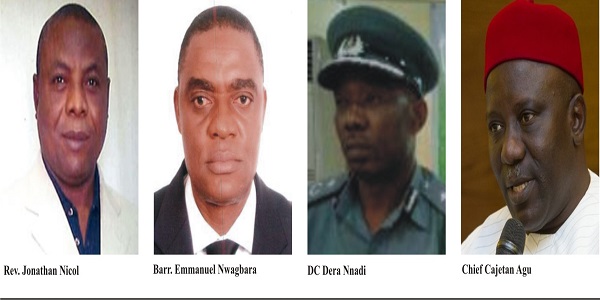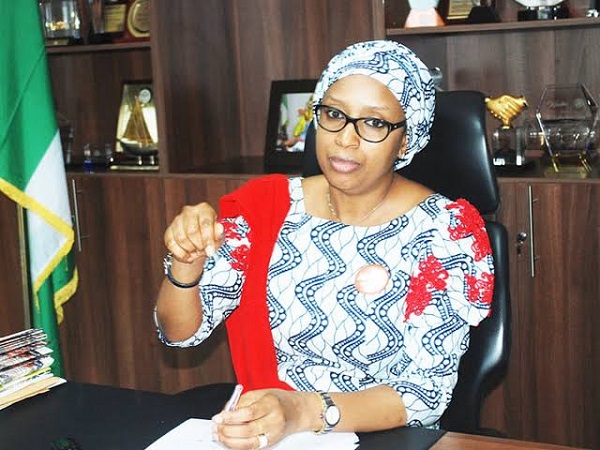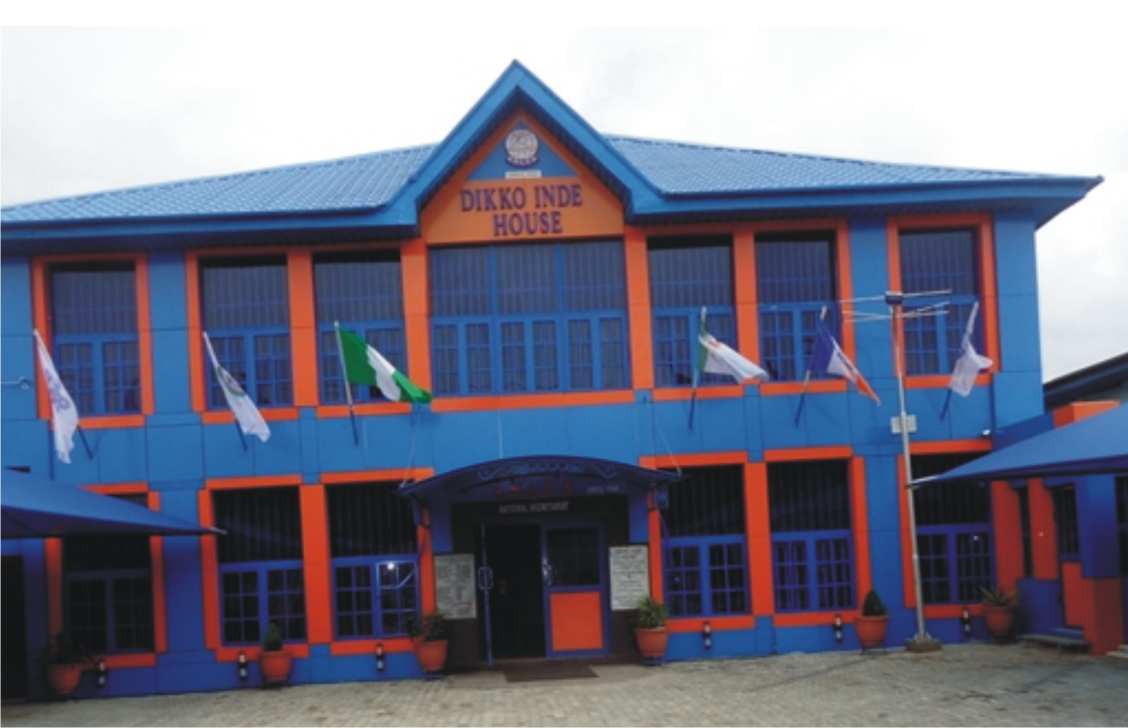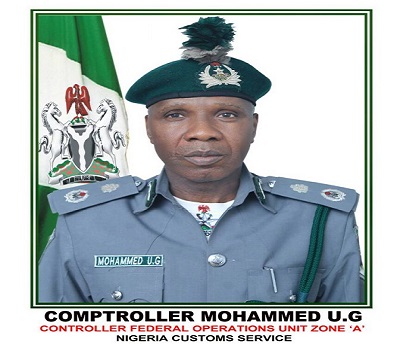Ethics And Integrity In International Trade: How Relevant?
By Kenneth Jukpor
The economic development of a country is largely determined by the volume and direction of her international trade but international trade can become haphazard, unreliable and complicated when there are no ethical standards to guide it. This is because the type, volume, direction of trade tends to generate productive activities and services to support it and ethics and integrity of the stakeholders at the various level of the supply chain impacts the efficiency of the trade.
Ethics stands for morality and according to the World Book Dictionary, it means formal or professional rules of right and wrong. It is a system of conduct or behavior and moral principles by which persons in a group, profession or trade. Ethical practice, however, goes beyond obeying the laws. It also involves abiding by the moral standard accepted by the society, professional or trade group. It advocates and expects proper and responsible behavior towards customers, business partners, colleagues etc. It becomes a way of doing business.
The Nigerian Port system as well as the maritime sector at large seem to have reached the lowest ebb with regards to the dearth of ethical standards and integrity in the way various stakeholders go about their businesses. This problem was what led the Nigerian Shippers’ Council (NSC) to organize a seminar in collaboration with the Nigeria Customs Service (NCS) on the theme; “Ethics & Integrity In International Trade”.
Highlighting the importance of ethics in the port environment, the Deputy Controller, Enforcement at Tin Can Customs Command, Mr. Dera Nnadi stressed that ethics and integrity were responsible for the compliance level of various port stakeholders to government policies.
Nnadi said, “Every collaboration between agencies in the Nigerian maritime industry is commendable because there is always the need to shares ideas and this can never be overemphasized. This rapport between stakeholders creates an ambiance where ethical standards and integrity thrives. Integrity is all about compliance, if you get people to display high level of ethics and integrity, you would observe a greater level of compliance. The good thing is that we also invited the stakeholders to take advantage of the training opportunities available in the Customs”
Nnadi who was representing the Zonal Coordinator ‘Zone A’, ACG Monday Abueh, said, trade is dynamic and grows at exponential rate and the expansion of trade is beyond the traditional mandate of regulatory agencies and throws up its own challenges. “Customs role has gone beyond revenue collection to include management of trade, cross border security and environmental protection. This role is often threatened by poor integrity of the supply chain & the solution rests on collaboration with relevant stakeholders.
“One of such collaborations is our continued engagement to develop acceptable levels of ethics and integrity among regulatory agencies and stakeholders using World Customs Organization (WCO) tools such as the Arusha Declaration and the Safe Framework of Standards.”
Nnadi equally highlighted some suggestions for Customs Area Controllers and other Heads of Units to ensure high ethical standards and integrity of their officers.
“Heads of Units should have prime responsibility for identifying weaknesses in working methods and in the integrity of their officers and take steps to rectify such weaknesses. Internal and external auditing must ensure that Customs procedures are appropriate and are being implemented correctly. The internal auditing arrangements should be complemented by an internal affairs unit that has the specific task of investigating all cases of suspected malpractice.”
“The management should instill in its officers loyalty and pride in their service, an “esprit de corps” and a desire to co-operate in measures to reduce their exposure to the possibility for corruption. Customs officers should receive adequate professional training throughout their careers, which should include coverage of ethics and integrity issues” he said.
Meanwhile, the President of Shippers Association Lagos State (SALS), Rev. Jonathan Nicol said that integrity in the port system “is for you to know that the document that you are having is genuine and not falsified. If agents feel that the documents aren’t genuine, they should raise alarm. However, the agents are unlikely to know the content of the container until it is opened during examination. The idea behind this seminar is that all stakeholders must be transparent and uphold ethical standards in their various practices. The Customs must be thorough as it goes about its job and the same applies for other stakeholders. Everybody should follow the rules of engagement and processes. These include the laid down rules from ‘Form M’, ‘PAAR’ and all other procedures such as Customs examinations”
Rev. Nicol who was also chairman of the event noted that Nigeria was still searching for the best approach to conduct trade with the correct ethics and integrity in daily transactions with the nation’s ports and border posts. He said that the Customs are accused of causing delays in the ports when other stakeholders cause the delay with their inadequate documentation.
“Most times, we hold the Customs responsible for the delay but if as an importer or freight forwarder you do your documentation appropriately there would be no need for delays. If you come across fraudulent Customs officers you can teach them because some of them are corrupt because they are not really knowledgeable in the Customs procedures. If they are very deviant, you take the matter up to higher quarters. We want people to be consistent with the ideal procedures and that is the essence of this stakeholders meeting on ethics and integrity and it would be continuous until we achieve the desired result” he said.
Nicol explained that the port system brings people from various backgrounds, ideas and believes to do one job which is to get goods in or out of the ports.
“The port system creates jobs for different kinds of individuals so they come together and many would love to cut-corners to make more money but we need to have an appreciable level of credibility and decency” he added.
On his part, the Executive Secretary of the Nigerian Shippers’ Council, Mr. Hassan Bello called on shippers and licensed clearing agents to comply with customs cargo clearance procedures at the ports.
The Executive Secretary of the Council, who was represented by the Deputy Director, Compliance and Monitoring Department of the Council, Chief Cajetan Agu, noted that part of the Council’s mandate is to create awareness among stakeholders on efficient and effective ways of conducting business.
Therefore he commended the seminar as apt to update players in the industry on the need to embrace ethics and integrity on international trade.
“When cargoes are sincerely declared and proper documentation made in line with established guidelines, government will have more trust in the shippers and international trade will become a lot easier and less cumbersome.
“The thrust of this seminar will further create awareness among stakeholders on the benefits of making genuine and proper declaration of imports, which include improved revenue to government, reduction of delays at the ports and increased government confidence in shippers “, he added.
Meanwhile, the Founder of the National Association of Government Approved Freight Forwarders (NAGAFF) Dr. Boniface Aniebonam lampooned government agencies for conniving with the trading public to cheat the government which they were under oath to serve.
“The laws are there regarding untrue declaration and concealment but you cannot enforce it as such because this is trade and the import guideline of 2006 has created a kind of soft-landing for matters of this nature for additional duty to be given because it is trade. So it is about government taking care of its operatives adequately in terms of welfare so that they will not connive with the trading public to cheat the same government. Why we have not been able to fight corruption in the system is because both the giver and taker are both culpable.
“Why should an officer who is paid by the government and under oath to serve and respect the constitution of this country have any reason to connive with a business man who wants to make profit in his business? If you turn around and connive with the business man to cheat the government you have sworn under oath to serve and respect then something is wrong with the officer.” Aniebonam posited.
Barr. Emmanuel Nwagbara, who presented a paper at the event, highlighted some unethical practices in international trade to include; falsification of shipping documents, passing of substandard goods as standard, tariff avoidance through under-valuation and over-valuation of imported and exported goods, foreign exchange malpractices, subverting the import/export banned and restricted substances/goods regime of the country, concealment of the nature and type of cargo imported or exported, obtaining goods from trading partners deceitfully and not repatriating funds after sales as agreed, deliberate under-assessment of quality in order to short-change the supplier, non- remittance of import duties promptly by banks, hidden or unstated insurance clauses designed to trip up the shipper in the event of claims or refusal/delay in paying certified claims, among others.
However, he stated that the effects of non-adherence to accepted ethical standards include; unavailability of credit to shippers both locally and internationally, inability to process and conclude claims quickly since every agency concerned especially insurers must be extra careful to ensure due diligence, unclear/imprecise Customs procedures and requirements, loss of credibility for both the shipper and the country internationally with all the attendant negative snowball effect on other sectors of endeavor by the country, the country is labeled a high risk business area and foreign investment capital go to other destinations, cargo traffic volume may not reach its optimum potential resulting in loss in foreign exchange earnings, etc.
He recalled the court case of Brawal v Ometraco Int.l Ltd CA/L/121/2007 where Plaintiff’s container was broached and contents evacuated by thieves while in the terminal, the plaintiff lost over N15m because the clearing agent under declared the value of the consignment with duty under-payment and this worked against the importer – resulting in a huge loss. In another case which my firm advised our client to with-draw from court against the NCS [particulars deliberately with-held], the Plaintiff’s clearing agent manipulated pre- import documents to reflect another company’s name, under-declared the value of the cargo and paid import duty of less than 30% of the normal value. The importer lost over N18m following seizure of the consignment, the agent lost sustainable patronage.
In Nigeria, most failures in business cannot be attributed to inadequate knowledge of the intricacies of international trade only. Failures arise also from dishonest and unethical practices. When foreign suppliers/buyers doubt everything Nigerian businessmen promise them, it becomes obvious that those businesses are headed for the rocks.
A large proportion of international trade involves the movement of goods and services by sea. This mode, therefore, plays an important role and as such the significance of ethics and integrity is symbolized by the motto in shipping which is “Our Word” Our Bond”. This is so because when shipping company promises to deliver a container from Antwerp to Tin Can port in two weeks, the shippers should reasonably expect that the company would keep its word.
Unfortunately, a number of businessmen and women (both shipping service providers and users) go into international trade relationships without the right ethical attitude. This ultimately impacts negatively on the country’s economy in terms of high prices and diversion of investment capital to other destinations perceived to be more trade friendly.
At Kings Communication Limited, publishers of MMS Plus weekly newspapers, our motto reads “Integrity Is Everything”
Copyright MMS Plus.
All rights reserved. This material, and other digital content on this website, may not be reproduced, published, broadcast, rewritten or redistributed in whole or in part without prior express written permission from KINGS COMMUNICATIONS LIMITED.








